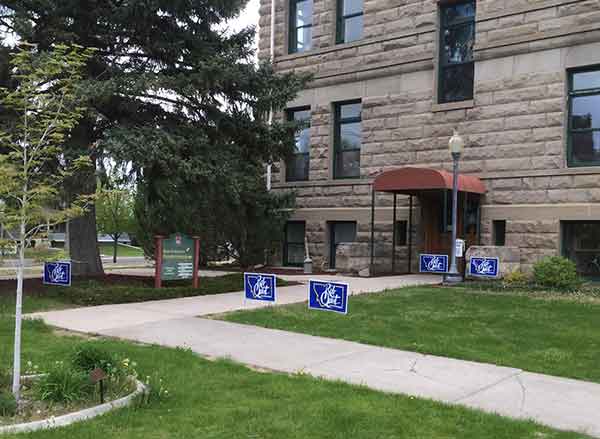An alert (and angry) reader alerted us to this item on KRTV’s Facebook page earlier today, the comments below the news item are what caught the readers, and our, attention: So we have to ask, where was KRTV online news director Dave Sherman for this one? After all, Deletin’ Dave has gained quite the reputation…
Author: ECB Staff
E-City Beat Comments Policy
E-City Beat welcomes all comments related to the corresponding post as long as those comments are on point and are not slanderous, obscene or overly personal. E-City Beat will not allow this blog to be a platform to launch unrelated personal attacks or vendettas disguised as comments against our staff or contributors.
A Question For The Chief Slaughterhouse Opponent
In Jeni Dodd’s recent piece about the proposed Friesen development, Great Falls Concerned Citizens chief organizer, George Nikolakakos, writes: “On Mr, [Tom] Jacobson, as an economic authority in the region, his opinion matters and carries weight. What he has pointed out (unrelated to this project) is that the average wage in cascade county is $18 an…
Fake News — Great Falls Tribune
Mr. Larson's information about me is not correct. There is no Deferred sentence and no probation as stated. Yes deferred prosecution and charges dropped. I did not plead guilty or nor was I found guilty. @GFtrib_JStrauss https://t.co/0lHy5nvYVa — Bob Edwards (@Bedwards_Gfalls) December 31, 2017 On New Year’s Eve, a sleepy news day, Sheriff Bob Edwards…
Happy New Year!
Here’s hoping everyone had a wonderful holiday season and wishing all a marvelous, prosperous 2018. We look forward to continuing our mission to publish great content about our city, state and region in the coming year. Stay tuned this week for a very interesting and informative piece written by Great Falls Public School District board…
Local City And County Board Openings
There are a couple of local government boards with fast approaching application deadlines readers should be aware of (and might be interested in applying for) – The Great Falls Ethics Committee and the Cascade County Zoning Board of Adjustments. The newly created City Ethics Committee is seeking three members to serve three, two and one…
Poll: Slaughter City?
At this point, most everyone knows: Canadian company Friesen Foods wants to bring the largest meat processing plant to Montana — just outside of Great Falls. Are you in favor of this project or not? Better yet, tell us why in the comments! [poll id=”7″]
Fox News Report: Gianforte Also Punched Guardian Reporter
Holy sh*t. What else can really be said about the stunning news of Republican Congressional candidate Greg Gianforte allegedly body-slamming a reporter, the Guardian’s Ben Jacobs, today in Bozeman? The audio, which you can listen to here, doesn’t sound good for Gianforte. After an hour or so, Gianforte’s press secretary, Shane Scanlon, offered the following statement: “Tonight, as…
Challenger Emerges For City Commission Seat
On April 20, the filing period opened for Great Falls Mayoral and City Commission candidates. Despite an otherwise quiet municipal electoral landscape, we were recently alerted to the online presence of one Commission candidate, Tyson Habein. You can follow his campaign on Facebook here. While he doesn’t seem to possess particularly high name ID, Habein’s could make for an interesting candidacy. He’s…
Rob Quist Signs Popping Up On GFPS Owned Properties
Two weeks from today, Montana voters will choose a new Congressional representative. From the looks of things here in River City, our local school district — that’s right, Great Falls Public Schools — is putting its fingers on the scale for Democrat Rob Quist. In clear violations of the law, someone has placed Quist’s campaign…











